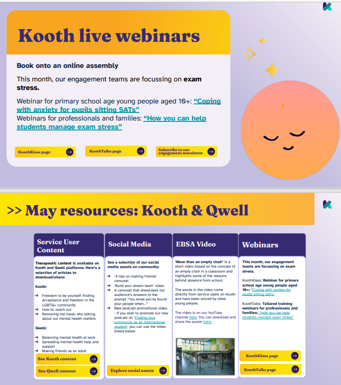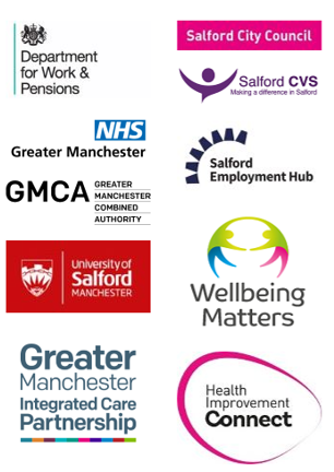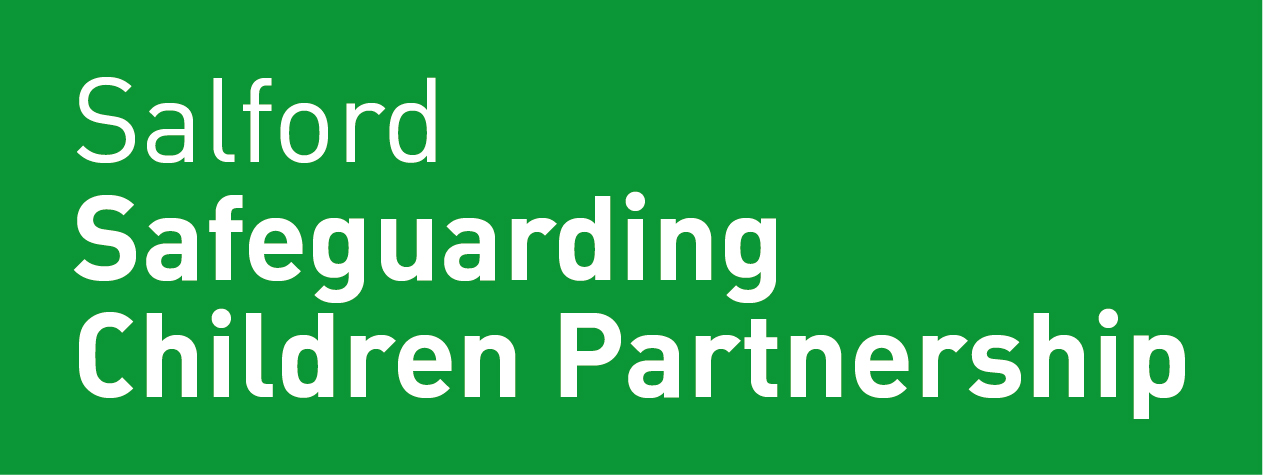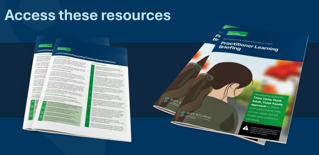News
December 2025
Previous news items are available by month of publication from the news tab.
Salford Safeguarding Children Partnership circulate monthly E-Bulletins; if you would like to be included on the distribution list, email sscp@salford.gov.uk.
Safe Lives 16 Days of Activism (25 November – 10 December)
Online and digital spaces should empower women and girls. Yet every day, for millions of women and girls, the digital world has become a minefield of harassment, abuse, and control.
This 16 Days of Activism (25 November – 10 December) join us as we rally for a world where technology is a force for equality – not harm.
16 Days of Activism against Gender-Based Violence | UN Women – Headquarters
Digital abuse is an increasingly common part of domestic abuse - from monitoring and harassment to control and intimidation online. This 16 Days, we’re sharing key terms to help you recognise the signs.
If you’re worried that someone close to you might be experiencing abuse, don’t wait for them to reach out from behind closed doors - reach in.
👂 Listen.
💬 Believe.
🤝 Reassure them that help is available - and find it together.
🔗 Learn more about how to reach in: #ReachIn - supporting domestic abuse victims - SafeLives
🚨 Trigger warning: strangulation 🚨
The findings in the new report from the Institute for Addressing Strangulation (IFAS) are deeply concerning.
The stories of the victims/survivors quoted in a recent Guardian article are a difficult - but vital - read.
➡️ Digital spaces shape real-world violence.
When pornography normalises strangulation, it sets dangerous expectations, fuels pressure to comply and puts victims at real risk of harm.
➡️ There is no safe way to strangle.
It can cause serious and potentially life-threatening physical and mental effects.
➡️ Not all injuries can be seen.
In fact, 50% of survivors of strangulation abuse will sustain no visible injury. (Strack 2001, White et al 2021).
We must train all professionals to recognise the signs. Even when we think there are none…
✍️ FREE 45-minute eLearning ✍️
Delivered in partnership with IFAS.
✔️ Recognise the signs.
✔️ Evidence safely and effectively.
✔️ Protect survivors and save lives.
🔗 Access the eLearning today: NFS training for professionals - SafeLives
🔗 Read the IFAS report: Strangulation During Sex in the UK - Institute for Addressing Strangulation
🔗 Read the Guardian article: ‘I knew I was starting to have a seizure’: women describe lasting effects of being ‘choked’ during sex | Sexual health | The Guardian
Care Leavers Awareness Month

Care Leavers’ Month is not only about celebration—it’s about amplifying voices, raising awareness of challenges, and encouraging positive change in policy and practice.
👉 Find out more about Care Leavers’ Month and the national campaign :
Celebrating Care Leavers’ Month 2025 | Children's Commissioner for England [childrensc...ner.gov.uk]
👉 Take a look at the brilliant piece of work that GMYN have completed with our Salford care leavers: a comic called Hear My Voice. It has been featured in ITV news and the radio. Read and watch the article on the New comic book that reveals the lived experiences of Salford children in foster care | ITV News Granada
You can also view and order copies of 'Hear My Voice from GMYN
👉 Read the 7 minute briefing Corporate Parenting Principles
👉 Don't forget to book on to the upcoming training sessions on 'Supporting Cared for Children and Care Leavers' available on the SSCP Training Programme | Salford Safeguarding Children Partnership
A 100% of delegates who attended the course reported feeling strongly confident or confident in their ability embed the learning into their practice
Learning from Child Yvonne
To strengthen our Salford whole family approach - Think Child Think Adult Think Family the learning from Child Yvonne is aimed at staff from all agencies who work with adults, children, young people, families, and the wider community.
You can find links to the learning resources on Learning from reviews | Salford Safeguarding Children Partnership
Boost Your Knowledge and Confidence in Safeguarding - Explore SSCP Training!
Are you a professional or manager working with children, young people, families, or adults?
Explore a wide range of multi-agency courses The Salford Safeguarding Children Partnership (SSCP) Training Programme is here to help you:
✅ Stay informed about existing and emerging responses to safeguarding
✅ Build confidence in practical strategies for safeguarding
✅ Network with professionals across agencies and share best practice
✅ Support a whole-family approach: Think Child, Think Adult, Think Family
👉 Check out the full programme: SSCP Training Programme
Looking for more?
Alongside SSCP Training Programme, we also recommend complementary external courses available locally, across Greater Manchester, and nationally. These opportunities are designed to deepen your knowledge and strengthen your safeguarding practice.
👉 Explore External Training Opportunities: External Training | Salford Safeguarding Children Partnership
Strengthening Support for Families in Salford
Introducing the Families First Partnership Programme
Salford is proud to be part of the national Families First Partnership Programme—a transformative initiative improving how we support children, young people, and families.
Locally, this work is led by the Salford Safeguarding Children Partnership, bringing together professionals from early help, safeguarding, police, education, health, and community services. Together, we’re building a more integrated and responsive system of support—so no family is left behind.
More information and links to guidance is available in the Strengthening Support for Families in Salford document. To get involved, contact Clare Hopton: clare.hopton@salford.gov.uk

North West Safeguarding Partnership have developed a new website that aims to centralise tools, guidance and key updates.
Please sign up to the website: North West Safeguarding Partnership MoU | NWADCS
Young Person's Plan
A Young Person’s Plan (YPP) is a new way of working with young people to promote change. The aim is to empower young people in making informed decisions about their own lives and welfare. A Young Person's Plan is developed in partnership with young people with a focus on their individual strengths and the responsibility of the systems around them to keep them safe from harm.
For more information view the video and visit the web page Young Peoples Plans
Hidden Harms
Older Adults and Domestic Abuse
The ‘Hidden Harms’ video is a short animation which explains domestic abuse and how it may present differently in relationships involving older adults.
Recognising and Responding to Neglect Conference

A multi-agency conference was delivered September 2025 by Salford Safeguarding Partnership to enhance professional understanding, confidence, and collaboration in recognising and responding to neglect, as well as embedding learning into practice. Neglect continues to remain an SSCP priority.
Feedback from delegated highlighted key themes:
- Multi-agency collaboration: Emphasis on joint working across services
- Use of the Thriving Families Tool: Widely valued and planned for integration
- Professional curiosity: Encouragement to ask deeper questions and challenge assumptions
- Early Intervention: Recognised as vital in preventing neglect
- Training Impact: Described as informative to ask deeper questions and challenge assumptions.

Examples of Pledges made on the day
“I will embed utilising the Think Family and Thriving Families Tool into my practice to identify and improve on instances of neglect.”
“To be more professionally curious and not be afraid to ask the more sensitive questions.”
“Continue promoting use of the tool to frontline practitioners.”
“Use of the toolkit in collaboration with families, flexing it to meet their needs and ensuring it does not feel oppressive.”
Greater Manchester Programme of Learning Events: Tackling Exploitation
Join the latest Programme of Learning Events on Exploitation, organised by the Greater Manchester Complex Safeguarding Hub in close collaboration with our local and national partners.
This programme forms part of the Greater Manchester Complex Safeguarding Week of Action, which takes place bi-annually to strengthen our collective understanding and response to exploitation.
Running from 10-14 November and 17-21 November, this year’s programme features contributions from a range of subject-matter experts covering a wide range of topics related to exploitation, including emerging trends and cross-cutting themes. There will be a particular focus on recent developments in Child Sexual Exploitation and online harms.
Booking links and session details will be added as they become available. Please check back regularly for the most up-to-date information and new opportunities to register. Do circulate widely within your networks of professionals, as well as parents and carers where appropriate.
All training sessions are free of charge, open to everyone in Greater Manchester, and delivered online via Microsoft Teams Complex safeguarding in Greater Manchester - Greater Manchester Combined Authority
Salford Trauma Informed/Responsive Practice Training
Various Dates | ⏰ Mix of AM, PM and All Day | ⚲ Online and Face to Face
Salford City Council and partners have commissioned Dignifi to deliver a trauma awareness training programme over the next year. This programme has been developed using your feedback, supporting our journey towards becoming a trauma informed and trauma responsive city.
For more information and to book your space please visit Salford Trauma Informed Practice Training | Partners in Salford

Mental Health and Counselling Service Update
Check out latest updates from Kooth.com and Qwell.io, online mental health and counselling services.
Emotional Health Service Directory Update
The Salford Thrive Directory has been updated. The Directory has been developed to support anyone working or volunteering with children and young people. The directory will help you access useful information about different types of resources and services that are available to support children and young people's social, emotional health and well-being and to provide guidance when making a referral into services. For any queries about the directory please email EHWB@salford.gov.uk
7 minute Briefings and Case Review updates
Reflect: on the learning also spotlighted in the CSPR Panel annual report and the NSPCC Recently published case reviews including the national case review collection- Updated case reviews added this month featuring issues including sibling sexual abuse, suicide, neglect identification & intersectionality. emotional abuse, child neglect, cultural competency, and children who have disabilities.
The SSCP produces 7 minute briefings to offer insights from case reviews and themed learning, along with challenge questions for agencies, teams, and individuals to reflect on and consider in their practice. The briefings can be used in a variety of ways:
- Individuals can use the briefing independently for their own learning and development and share with others.
- Teams/Managers encourage circulation and use for information and development and share learning amongst their team i.e. team meetings, supervision, peer support to reflect and improve practice and systems.
- Use at a structured event during training and/or briefing sessions to complement overall learning and development
New and updated 7 Minute Briefings include;
- Child Yvonne- New
- Operation Encompass - New
- Building Relationships
- Corporate Parenting Principles
- Escalation and Professional Challenge
- Equality Act
- Making a good referral
- Managing allegations against adults who work with children (LADO) - Updated guidance
- Parental Mental Health includes Think CHILD tool
- Positive Fatherhood
- Unknown Males
You will also find these new briefings and tools from the SSAB useful.
- Newly-published Briefing Document for SAR Harry (2025)
- Managing Allegations Against People in Position of Trust (PiPoT) in Salford 7-minute briefing and Short video (6 mins 10 secs) explaining the PiPoT process in Salford
- New Self-Neglect Guidance and toolkit
Think Family, Professional Curiosity and Cultural Consciousness

In partnership between the SSCP nd the Salford Safeguarding Adults Board (SSAB) we have produced a joint webpage with information on Think Family Professional Curiosity and Equality, Diversity and Inclusion
Action: Take a look at these resources and share them with your teams / colleagues. These pages are under development, so if you have any comments or suggestions, please let us know by emailing shahanara.begum@salford.gov.uk
Calls to Action: National/Local Updates and Learning

Child Friendly Salford
What one thing should be done to improve things for children and young people in Salford?
Becoming a ‘Child Friendly City’ is one of our seven corporate priorities. We’re working with partners to make Salford a great place for children and young people to grow up and feel safe, cared for, heard, and have quality opportunities to learn, work, and play.
We’re joining other cities across the UK, and across the world, in implementing a Child Friendly City initiative, which involves the whole city, from nurseries, schools, the college and university, to the police, NHS, sports clubs, and voluntary groups.
We’re at the beginning of our journey and are asking children and young people what they think a child-friendly city should be.
Can you help?
If you work with children and young people, or have got children, nephews, nieces, or grandchildren who live in Salford, please ask them what they think and let us know via the google online form.
Those working with groups are also encouraged to run a workshop around this topic. Details of what to include can be found on this flyer.
We’ve been working with children and young people to design the identity for Child Friendly Salford that you can see at the top of this email. We want them involved every step of the way!
You can read more on our Child Friendly City webpage, and you’ll hear more about Child Friendly Salford as the programme progresses.
Hate Crime Awareness - Ending Hatred, Amplifying Hope
Hate crimes can affect anyone. Whether you’ve experienced one or know someone who has, we’re here to help you understand what they are, how to report them, and how to support others.
Following the tragic events of 02/10/2025, Salford Safeguarding Children Partnership would like to extend our thoughts to the victims, their loved ones, and with all members of the Jewish community in at this difficult time. Colleagues from across partner organisations will continue to provide a range of different support, help, advice, and reassurance to communities in Salford over the coming days.This news will leave many people feeling overwhelmed- please seek support within your organisation and take care of your well-being.
Hate crime is a criminal act that is motivated by hostility or prejudice.
Find out more information on ways to report a hate crime including how to become an ambassador Hate crime•Salford City Council,
The British Muslim Trust (BMT) has launched a new helpline service in the wake of increased anti-Muslim hate in the UK. The helpline will be used to support victims to help them report their experiences in a safe environment.
👉 SSCP Cultural Consciousness Guidance
Right Care Right Person

Right Care, Right Person (RCRP) is a new approach to dealing with calls to the police from people with issues to which policing is not always the best agency to help. This could be where there are concerns for a person’s welfare linked to such issues as mental health, medical or social care needs where a police response isn’t always appropriate.
This new approach is about getting the right person with the right skills, training and experience to provide the best support for that individual.
Now with the new launch of RCRP, the police call handler will signpost callers to other more suited agencies where appropriate. Here in Greater Manchester, this could be Greater Manchester Mental Health, North West Ambulance Service or a service in their local authority. This approach will enable police officers to have more time to fight, prevent and reduce crime, harm, and anti-social behaviour; investigate and solve crime, and keep people and communities safe.
Get the right care from the right person
Self Care: Trauma Responsive Workforce
Whatever you have planned following the holiday period, try and make time to pause, reflect and take care of yourself.
Alongside support, supervision and services available to us in our organisations to support you and your colleagues, you should also prioritise taking better care of yourself and pay attention to what you need.
The following information and resources have been identified to support the wellbeing of our people and teams in the workplace including how we look after ourselves.

- Self care resources | Partners in Salford
- Stress - Every Mind Matters - NHS (www.nhs.uk)
- Managing stress and building resilience - tips - Mind
- Greater Manchester Resilience Hub - health and care staff wellbeing service
- Greater Manchester Wellbeing Toolkit | Greater Manchester Integrated Care Partnership
- Togetherall
- Six Degrees Social Enterprise – Supporting Your Mental Health (six-degrees.org.uk)
- Meditation and Sleep Made Simple - Headspace
- Trauma Responsive Greater Manchester (trgm.co.uk)

WorkWell in Salford
WorkWell is a free offer designed to support people with health conditions or disabilities whether a mental health or physical health concern such as a musculoskeletal (MSK) condition. The experienced WorkWell team will help you stay in work or return to work if you are employed, self-employed or recently unemployed and facing health related challenges to either remain in work or return to work. This includes:
- a personal assessment to understand the best support for your needs
- tailored plans to address your physical and mental wellbeing
- access to local health services, wellbeing activities, and community support
- careers advice and guidance to help you progress in your current job or explore new opportunities
- tailored support from a dedicated Work and Health Coach
For more information visit WorkWell (Health and Work Support)
Information and learning on a variety of subject matters related to safeguarding children and adults, can also be accessed through the SSCP Training Programme, 7 minute briefings, learning from Practice Reviews and the SSCP YouTube Channel.
All enquiries concerning the welfare or safety of a child or requests for information MUST BE SENT DIRECTLY to the Bridge Partnership.
The Bridge Partnership can be contacted on 0161 603 4500. All referrals and requests for support must be completed on the online referral form. The Bridge Partnership is available Monday to Friday 8.30am - 4.30pm. If you need to speak to someone outside these times, please contact the Emergency Duty Team (EDT) on 0161 794 8888. If a child is in immediate danger of being harmed or is home alone, call the police on 999.
If you are worried about an adult - Report abuse or neglect by telephone on: 0161 206 0604. For further information visit the Safeguarding adults page on the Salford City Council website.
Latest news
Details of all the latest news from the Salford Safeguarding Children Partnership.




